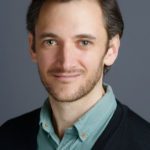Présentation
The basic principles of mRNA decoding are conserved among all extant life forms. We present an integrative view all the complex interaction networks between mRNA, tRNA, and rRNA: the intrinsic stability of codon-anticodon trimers, the spatial conformation of the anticodon stem-loop of tRNA, the presence of modified nucleotides, the occurrence of non-Watson-Crick pairs in the codon-anticodon helix and the interactions with bases of rRNA at the decoding site. We derive an information-rich, alternative representation of the codon table. The new organization of the 64 codons is circular with an asymmetric distribution of codons that leads to a clear segregation between GC-rich 4-codon boxes and AU-rich 2:2-codon and 3:1-codon boxes. The advantage of integrating data in this circular decoding system is that all tRNA sequence variations can be visualized, within an internal structural and energy framework, for each organism and anticodon. Within this new representation, the multiplicity and complexity of nucleotide modifications, especially at positions 34 and 37 of the anticodon loop, segregate meaningfully and correlate well with the necessity to stabilize AU-rich codon-anticodon pairs and to avoid miscoding in split codon boxes. This structure-based network of interactions results in an energetically uniform decoding of all tRNAs that can adapt to the cellular constraints. The evolution and expansion of the genetic code is viewed as originally based on GC content with the progressive introduction of A/U together with tRNA modifications and the modification enzymes. This allows for a great diversity of codon usage depending on GC content of the genome and on the number and types of tRNAs. The representation should help the engineering of the genetic code to non-natural amino acids.
In summary, in order to maximize the diversity in codon usage without increasing the number of different tRNAs (for decoding the 61 sense codons), cells developed sophisticated arrays of tRNA modifications that are anchored in cellular metabolic enzymatic pathways. The genetic code is not translated universally and several differences exist between organisms and in the three kingdoms of life. In each organism, there is a very strong connectivity between the elements responsible for the reliability and efficiency of the decoding process of the genetic code. The multiplicity of these highly interconnected elements and the integration of the various biological information flows ultimately allow for the maintenance of subtle cellular homeostasis and place the processes of translation at the center of cellular activities.
Grosjean, H., Westhof, E., Nucleic Acids Research 2016, 44, 8020-8040.
Registration
Apply here

